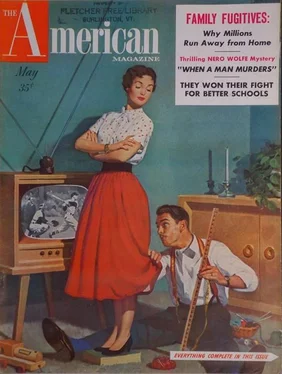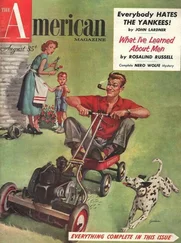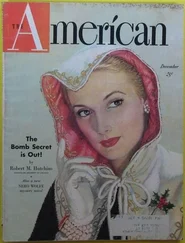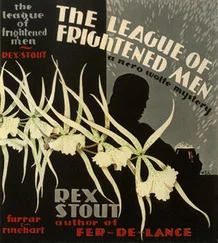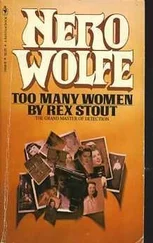Rex Stout - When a Man Murders…
Здесь есть возможность читать онлайн «Rex Stout - When a Man Murders…» весь текст электронной книги совершенно бесплатно (целиком полную версию без сокращений). В некоторых случаях можно слушать аудио, скачать через торрент в формате fb2 и присутствует краткое содержание. Год выпуска: 1954, Жанр: Классический детектив, на английском языке. Описание произведения, (предисловие) а так же отзывы посетителей доступны на портале библиотеки ЛибКат.
- Название:When a Man Murders…
- Автор:
- Жанр:
- Год:1954
- ISBN:нет данных
- Рейтинг книги:3 / 5. Голосов: 1
-
Избранное:Добавить в избранное
- Отзывы:
-
Ваша оценка:
- 60
- 1
- 2
- 3
- 4
- 5
When a Man Murders…: краткое содержание, описание и аннотация
Предлагаем к чтению аннотацию, описание, краткое содержание или предисловие (зависит от того, что написал сам автор книги «When a Man Murders…»). Если вы не нашли необходимую информацию о книге — напишите в комментариях, мы постараемся отыскать её.
When a Man Murders… — читать онлайн бесплатно полную книгу (весь текст) целиком
Ниже представлен текст книги, разбитый по страницам. Система сохранения места последней прочитанной страницы, позволяет с удобством читать онлайн бесплатно книгу «When a Man Murders…», без необходимости каждый раз заново искать на чём Вы остановились. Поставьте закладку, и сможете в любой момент перейти на страницу, на которой закончили чтение.
Интервал:
Закладка:
He interlaced his fingers at the crest of his central bulge. “The news that Mr. Karnow had been murdered was brought here by Mr. Stebbins early last evening, but my interest in it was only casual until Mrs. Karnow came at noon today and aroused it by hiring me. Then I gave it my attention, and it seemed to me that your obvious motive for murder — Mrs. Savage and her son and daughter, and Mr. Horne as the daughter’s husband — was not very compelling. From what my client told me of Mr. Karnow’s character and temperament, it seemed unlikely that any of you would so fear harsh and exigent demands from him that you would be driven to the dangerous and desperate act of murder. You had received your legacies legally and properly, in good faith, and surely you would at least have first tried an appeal to his reason and his grace. So one of you must have had a stronger motive.”
Wolfe cleared his throat. “That derogation of your obvious motives put me up a stump. There were two people with overpowering motives: Mr. Aubry and Mrs. Karnow. Not only did they stand to forfeit a much larger sum than any of you, but also they faced a deprivation even more intolerable. He would lose her, and she would lose him. It is not surprising that Mr. Cramer and his colleagues were dazzled by the glitter of that powerful motive. I might have been similarly bemused but for two circumstances. The first was that I had concluded that neither Mrs. Karnow nor Mr. Aubry had committed murder. If they had, they had come fresh from that ferocious deed to engage me to negotiate for them with the man one of them had just killed, for the devious purpose of raising the presumption that they didn’t know he was dead, and I had sat here and conversed with them for an hour without feeling any twinge of suspicion that they were diddling me. I was compelled either to reject that notion or abandon certain pretensions that feed my ego. The choice wasn’t difficult.”
“Also Mrs. Karnow was your client,” Cramer said pointedly.
Wolfe ignored it, which was just as well. He went on. “The second circumstance was that the possibility of another motive had been suggested to me. It was suggested in a letter which Mrs. Karnow had shown me yesterday — the last letter she had received from her husband, nearly three years ago.” He opened a drawer and took out sheets of paper. “Here it is. I’ll read only the pertinent excerpt:
“Speaking of death, if he should get me instead of me getting him, something I did before I left New York will give you quite a shock. I wish I could be around to see how you take it. You claim you have never worried about money, that it’s not worth it. Also you’ve told me that I always talk sardonic but haven’t got it in me to act sardonic. This will show you. I’ll admit I have to die to get the last laugh, but that will be sardonic too. I wonder do I love you or hate you? They’re hard to tell apart. Remember me in thy dreams.”
He returned the papers to the drawer and closed it. “Mrs. Karnow had the notion that what her husband had done was to make a new will, leaving her out, but that theory was open to two objections. First, a wife cannot be so brusquely disinherited by a man of means; and second, such an act would have been merely malicious, not sardonic. But the phrase ‘speaking of death’ did imply some connection with his will, and raised the question, how might such a man have so remade his will as to cause such a woman to worry about money? That intention was clearly implied.”
Wolfe turned a hand over. “Under the circumstances as I knew them, a plausible conjecture offered itself: that Karnow had made a new will, leaving everything to his wife. That would certainly give her an inescapable worry about money, the same worry he had had — how much should his relatives be pampered? And since it was his money and they were his relatives, for her the worry would be even more bothersome than for him. I would call that sardonic. Also he might have been moved by another consideration, a reluctance to bestow large amounts on them. I had gathered, though Mrs. Karnow didn’t make it explicit, that in matters of personal finance and economy Karnow did not regard his relatives as paragons — a judgment that has been verified by their management of their bequests.”
Ann Horne’s head jerked around, and she told Caroline, “Thank you so much, Lina darling.” Caroline made no reply. Judging from her intent face and rigid posture, if she replied to anything it would be an explosion.
“Therefore,” Wolfe resumed, “it appeared that the hypothesis that Karnow had made a new will deserved a little exploration. To ask any of you about it would of course have been jackassery. It was reasonable to suppose that for such a chore he would have called upon his friend and attorney, Mr. Beebe, but it seemed impolitic to approach Mr. Beebe on the matter. I don’t know whether any of you has ever heard the name Saul Panzer?”
No reply. No shake of a head. They might all have been in a trance.
“I employ Mr. Panzer,” Wolfe said, “on important missions for which Mr. Goodwin cannot be spared. He has extraordinary qualities and abilities. I told him that if Mr. Beebe had drafted a new will for Mr. Karnow it had probably been typed by his secretary, and Mr. Panzer undertook to see Mr. Beebe’s secretary and try to get on terms with her without arousing her suspicion. I would entrust so ticklish an errand to no other man except Mr. Goodwin. Early this afternoon he called on her in the guise of an invesigator from the Federal Security Agency, wanting to clear up some confusion about her Social Security number.”
“Impersonating an officer of the law,” Beebe protested.
“Possibly,” Wolfe conceded. “If such an investigator is an officer of the law, he is a federal officer, and Mr. Panzer can await his doom. In ten minutes he collected an arsenal of data. Mr. Beebe’s secretary, whose name is Vera O’Brien, has been with him two and one-half years. Her predecessor, whose name was Helen Martin, left Mr. Beebe’s employ in November nineteen-fifty-one to marry a man named Arthur Rabson, and went to live with her husband in Florence, South Carolina, where he owns a garage. So if Karnow made a new will before he left New York, and if Mr. Beebe drafted it, and if Mr. Beebe’s secretary typed it, it was typed by the now Mrs. Arthur Rabson.”
“Three ifs,” Cramer muttered.
“Yes,” Wolfe agreed, “but open for test. I was tempted to get Mrs. Rabson on the phone in South Carolina, but it was too risky, so Mr. Panzer took a plane to Columbia, and I phoned there and chartered a small one to take him on to Florence. An hour ago, or a little more, I got a phone call from him. He has talked with Mrs. Rabson, she has signed a statement, and she is willing to come to New York if necessary. She says that Mr. Beebe dictated to her a new will for Mr. Karnow in the fall of 1951, that she typed it, and that she was one of the witnesses to Karnow’s signature. The other witness was a woman named Nora Wayne, from a nearby office. She supposes that Miss Wayne did not know the contents of the will. By it Karnow left everything to his wife, and it contained a request that she use discretion in making provision for Karnow’s relatives, who were named. Mrs. Rabson didn’t know that—”
“Sidney wouldn’t do that!” Aunt Margaret cried. “I don’t believe it! Jim, are you going to just sit there and blink?”
All eyes were at Beebe except Wolfe’s. His were on the move. “I should explain,” he said, “that meanwhile Mr. Goodwin was making himself useful. He learned, for instance, that the only item of tangible evidence against Mr. Aubry, a card of his that was found in Mr. Karnow’s pocket, had been accessible to all of you last Friday in Mr. Beebe’s office.”
Читать дальшеИнтервал:
Закладка:
Похожие книги на «When a Man Murders…»
Представляем Вашему вниманию похожие книги на «When a Man Murders…» списком для выбора. Мы отобрали схожую по названию и смыслу литературу в надежде предоставить читателям больше вариантов отыскать новые, интересные, ещё непрочитанные произведения.
Обсуждение, отзывы о книге «When a Man Murders…» и просто собственные мнения читателей. Оставьте ваши комментарии, напишите, что Вы думаете о произведении, его смысле или главных героях. Укажите что конкретно понравилось, а что нет, и почему Вы так считаете.
